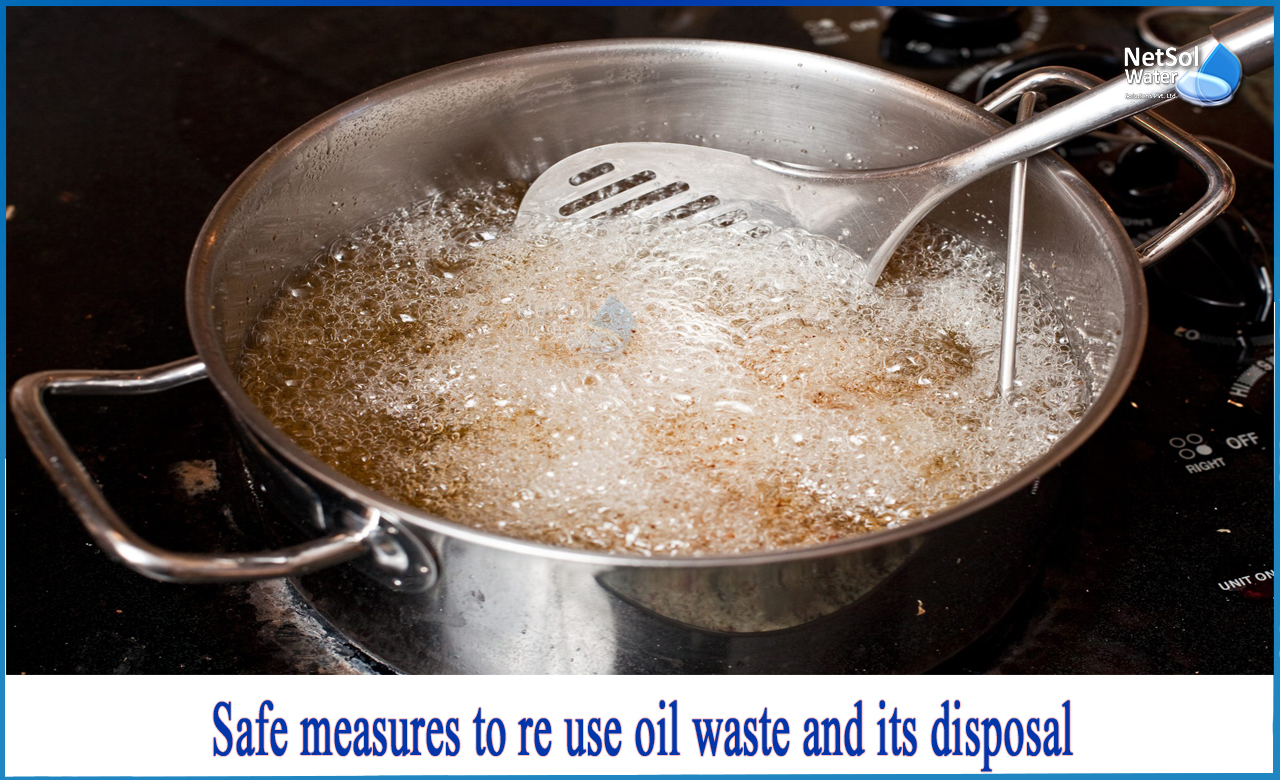How to Safe measures to reuse oil waste and its disposal?
Every year, water contamination accounts for around 16% of all pollution occurrences. Oil pollution is the most widely reported sort of water contamination, according to the EPA. It has a significant negative influence on both individuals and the environment. Oil contaminates groundwater when it penetrates bodies of water or soil, causing harm to animals, plants, and humans. The contamination also threatens the safety of drinking water and destroys natural habitats.
A small bit of oil can cause a slew of issues. Because of the way it spreads, even a small amount can cover an acre of water surface. Additional dangerous qualities may be present in used oil. For example, engine oil can be considered as a carcinogen. Oils must therefore be stored and disposed of with extreme caution.
What is “Used Oil”?
Any petroleum-based or synthetic oil that has been used is referred to as "used oil." Our automobiles, lawnmowers, and a variety of other devices all run on oil. However, contaminants such as dirt, metal scrapings, water, or chemicals can mix with the oil during routine use, causing the oil to lose its effectiveness over time. To complete the job properly, this spent oil must eventually be replaced with fresh or re-refined oil.
Oily waste sources and kinds
Engine oil for machine or vehicle maintenance and vegetable-based oil for cooking are the two types of oil used in a residential context. Cooking oil is used in bakeries and restaurants, while motor oil is used in workshops and garages.
Oil products are also used in industrial and commercial operations. Industrial machinery, for example, may need emulsified cutting oils, lubricants, or hydraulic fluid. Transformers also use specific oils that contain PCBs, a toxic poison that remains in the environment.
Risks associated with used oil
Any contact with oily waste or used oil on a regular or long-term basis can cause:
1: Ingestion of acute oral toxicity
2: Carcinogenicity
3: Spillage.
Disposal of used oil or wasted oil
-Cooking oils in smaller quantities can be disposed of through municipal waste collection services in the home.
-Lubricating oils used in car maintenance should be properly disposed of in a container with a secure lid at your local household recycling centre.
-Waste mineral and culinary oils can be easily treated to recover useful components or be used as fuel.
Advantages of recycling and reusing used oil
1: Recycling and reusing leftover motor oil is more environmentally friendly than throwing it away. Used motor oil can be re-refined into new oil, processed into fuel oils, and used as petroleum industry raw material.
2: Used oils from vehicles and lawnmowers, such as engine lubricating oil and hydraulic fluids can contaminate the environment if they are not recycled, or disposed of appropriately.
To avoid damaging the environment, used oil must be appropriately disposed by municipal waste management authorities. Used oil filters are also a waste issue. They can be securely recycled or disposed of if properly drained.
Netsol Water clearly recycles wastewater or wasted oil from Industries!
We collect, transport, and remove used oil's bottoms, solids, and water. Our cost-effective fuel-to-fuel recycling is better for the environment than consuming finite fossil fuel resources such as coal, or gas.
Netsol Water can assist you with any part of a project to ensure that it is completed appropriate. To begin the conversation, please contact us at +919650608473 or send an email to enquiry@netsolwater.com for further information or product purchase related query.



